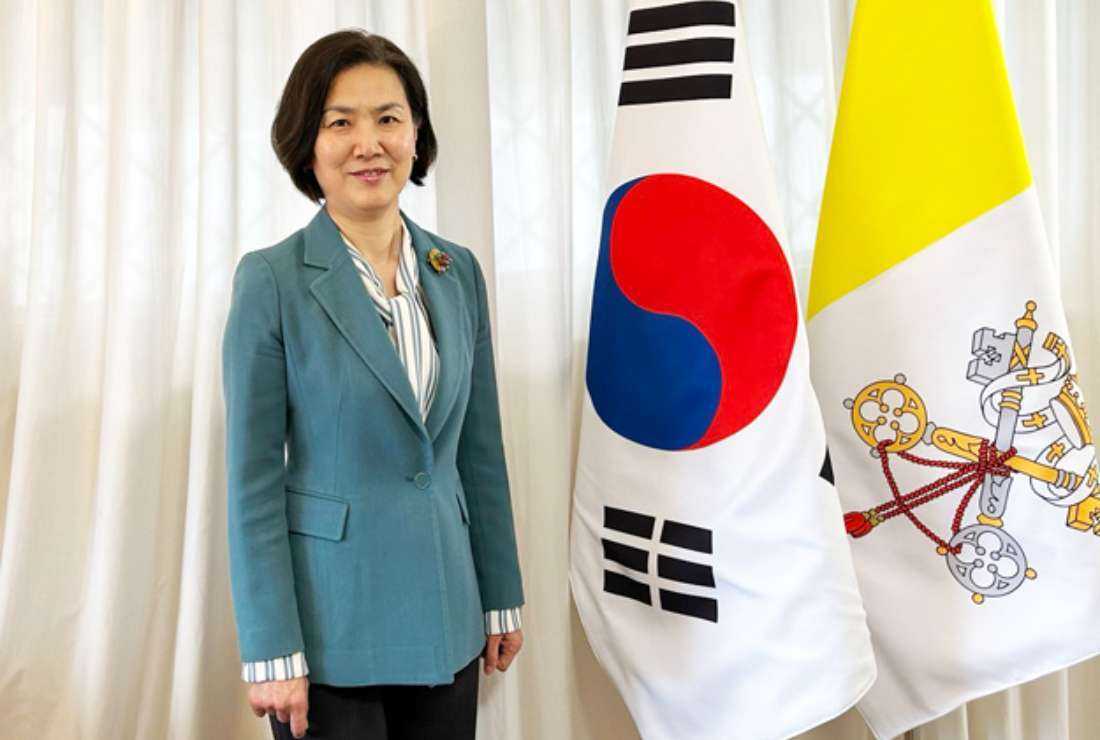
South Korea’s newly appointed ambassador to the Holy See has reiterated the nation's commitment to hold peace talks with North Korea aimed at reconciliation and unification in the Korean Peninsula.
“We will cooperate with the Holy See to resolve global issues and achieve peace on the Korean Peninsula,” said Oh Hyun-Joo, the first Catholic woman appointed as South Korea’s ambassador to the Holy See.
Oh said that the Korean government aims to support Pope Francis’ desire to bring peace to the region, Catholic Times reported on Feb. 3.
“The Korean government is well aware of the Pope’s interest in the Korean Peninsula… If possible, we would like to actively support it,” Oh said.
Peace talks between North and South Korea have been an ongoing process and the reconciliation of both nations has been a major pastoral issue for the Catholic Church in Korea.
"This year marks the 60th anniversary of diplomatic relations between Korea and the Holy See. We want to provide a driving force to advance bilateral relations to the next level by carrying out cooperative projects,” Oh said.
She also added that “we [South Korea] also want to act as a bridge so that anyone interested in the role of the Holy See in world peace, protection of human rights, reconciliation and dialogue between religions can come closer,” Catholic Times reported.
The South Korean government established the Ministry of Unification on March 1, 1969, to oversee inter-Korean relations and unification.
The ministry reflects the unique reality of the Korean Peninsula, which remains divided since the end of the Korean War.
Japan’s repressive imperial rule in Korea (1905-45) after World War II, left the country divided into two. A Communist regime backed by the Soviet Union captured the North and the democratic South sided with western powers including the United States.
The effort for unification failed due to disagreements between the US and the Soviet regimes, leading to the Korean War (1950-53).
During the war, the North Korean communist forces invaded South Korea, leading to 4 million deaths and the displacement of some 10 million families.
The war ended with an armistice, not a war treaty, on July 27, 1953. It means the nations are technically still at war.
Earlier this month, in a meeting with Unification Minister Lee In-young, Archbishop Peter Chung Soon-taick of Seoul appealed to the South Korean government to make concrete efforts for peace on the Korean Peninsula.
However, the unification and reconciliation process has been stalled and North Korea continues its barrage of weaponry testing and actions aimed to disrupt the peace process.
Reportedly, North Korea conducted a record number of missile tests in 2022 which included the test firing of Inter-continental Ballistic Missiles (ICBMs) that are estimated to reach the borders of the United States.
In a December-end meeting of the ruling Workers' Party, North Korean leader Kim Jong-un unveiled the nation’s new military goals and termed South Korea as the North's "undoubted enemy."
Kim also approved last year a new law that authorized the preemptive use of nuclear arms in a broad range of situations.
Ambassador Oh voiced her hope that “the pope’s prayer for peace on the Korean Peninsula will come true” through dialogue and continued efforts.
